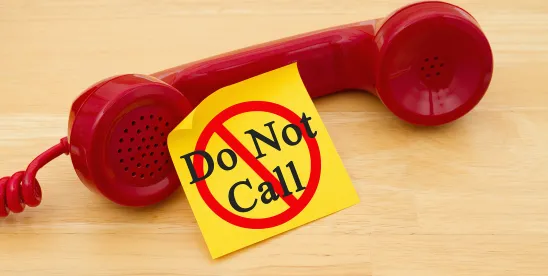I am often asked whether a text campaign containing an opt out can be used without consent so long as the consumer does not opt out. The answer is no–as yet another case demonstrates– but I think folks are often confused due to Can-SPAM.
The issue arose in an interesting situation here:
Auto dealership obtains permission from its customers to send text messages for marketing purposes. Dealership closes down and sells its list of customers to another dealership. Second dealership contacts consumer who opted in to hear from first dealership.
What result?
In Watson v. Manhattan Luxury, 2024 WL 4238307 (S.D.N.Y. Sept. 19, 2024) the Court held the second dealership had violated the TCPA’s DNC provisions because it lacked either prior express invitation or permission or an established business relationship with individuals who had registered their numbers on the DNC list. It also held that a company cannot keep texting just because a person “fails” to opt out.
In the first place, although the first dealership obtained consent it was limited to contact by that dealership, not any other party. The first dealership also apparently advised customers it might share their information with others, but the Court found a notice to consumers regarding information sharing is not the sort of signed agreement in writing to receive contact that qualifies for PEIP.
On the key issue of “failure to opt out” the court held as follows:
Defendant also argues that Plaintiffs’ failure to opt out of its “follow-up” messages establishes consent. Defendant sent messages stating, “Good afternoon, this is Jen the service concierge from Lexus of Manhattan. Can I text you regarding the maintenance for your Honda vehicle?” Defendant continued to solicit those customers who did not reply to opt out. But those customers’ silent acquiescence were not “a signed, written agreement between the consumer and seller which states that the consumer agrees to be contacted by this seller and includes the telephone number to which the calls may be placed.” Id. Nothing in the statute suggests that sufficient consent can be created in this way.
The case also offers an interesting look at the rarely used DNC provisions related to expanded EBRs in connection with related businesses. Here the second dealership argued it was an affiliate of the first dealership, but the court correctly found that such affiliation is irrelevant unless the consumer knew of it and expected that affiliation to matter in the context of their business dealings:
The text of the regulation makes clear that the key question is whether Defendant was the type of affiliate that Plaintiffs would expect “to be included” in their business relationship with HOM “given the nature and type of goods or services offered by the [Defendant] and the identity of the [Defendant].” Id. This language implies that the affiliate should provide the same types of goods or services as HOM, and that Defendant’s identity creates an expectation that it might provide related goods or services within the relationship between Plaintiff and HOM — for example, if the affiliate were “Honda of Manhattan Parts and Service.” A jury could find that Plaintiffs would reasonably expect that a Manhattan Lexus dealer does not provide the same types of goods or services as the Honda dealer that sold them their vehicles, and that nothing about Defendant’s identity creates an expectation that Defendant is within the relationship between Plaintiff and HOM, any more so than any other non-Honda car dealership in Manhattan. A reasonable jury also could find (or not) that HOM’s declaration to its customers when it closed that HOM’s “sister dealership Lexus of Manhattan is still capable of servicing your Honda” does not change the type of goods or services that Defendant would seem to offer or its identity, which the regulation dictates are the relevant factors. This question of fact is for the jury.
Last, the court granted summary judgment to the defendant on the issue of willfulness finding there was no evidence the defendant knew it was violating the law in sending the texts at issue. Notably, the “knew it was violating the law” is a different standard than is applied in most of the country–so keep that in mind.
So at bottom:
- PEIP/PEWC for calls to numbers on the DNC only extends to companies specifically referenced in the agreement;
- Unilateral acknowledgements of data sharing do not extend the reach of PEIP/PEWC;
- Failing to make use of an opt out mechanism is not consent to receive calls; and
- In some courts there can be no willfulness enhancement unless the defendant knew the TCPA was being violated.
Great case. Very interesting.




 />i
/>i
